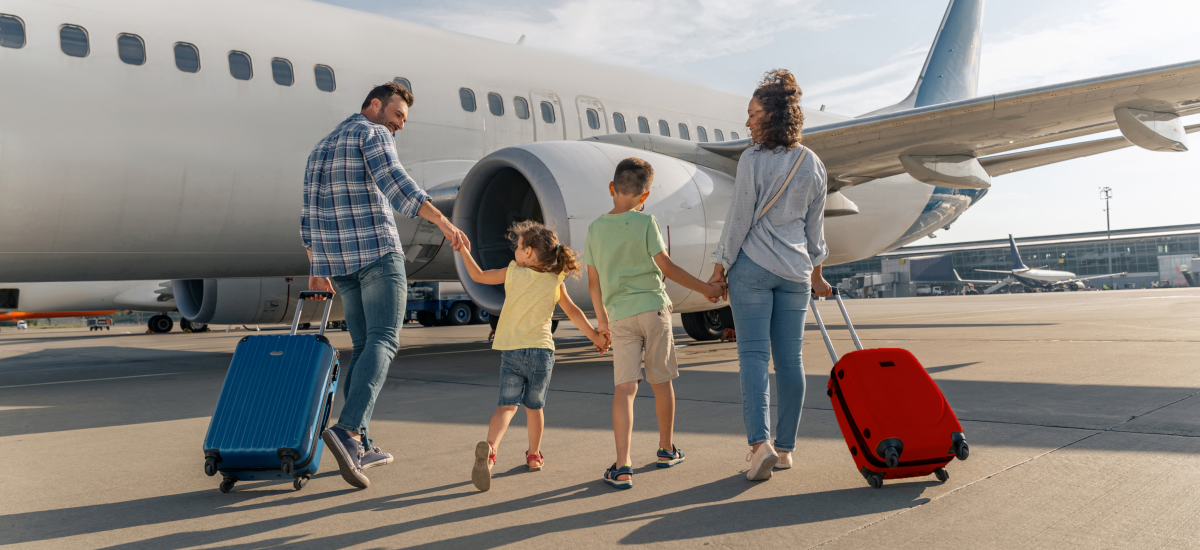Travel insurance is an important layer of protection for travellers. It provides financial protection against unexpected circumstances such as medical emergencies, trip cancellations, or loss of luggage. However, though most policies guarantee full coverage, it's equally important to understand some of the important exclusions in your travel insurance policy.
Failure to understand these exclusions can result in a claim being denied or additional unnecessary stress during your trip. Let's delve deeper to know the most common exclusions from a travel insurance policy and some useful tips and tricks that can be used to avoid potential risks.
What are travel insurance exclusions?
Travel insurance exclusions refer to specific terms or situations which are not covered in your travel insurance coverage. These exclusions vary from policy to policy. Understanding these specific key exclusions is crucial for safe and sound travel plans. Generali Central Insurance provides transparent and hassle-free policy terms to ensure you’re well-informed about coverage and exclusions.
Common travel insurance policy exclusions
Here are some situations commonly not covered by travel insurance policies:
· Pre-existing medical conditions or drug-related issues
A pre-existing condition due to any illness or health issue that was diagnosed or treated before buying the policy is not covered. General travel insurance policies generally do not include these unless they are covered through additional cover
· Alcohol or drug-related issues
Claims resulting from accidents or injuries under the influence of alcohol or drugs are excluded. Even in minor cases, the influence of alcohol or drug-related issues can cancel your travel insurance claims.
· Mental health issues
Travel insurance policies typically do not include coverage for mental health issues, including anxiety, depression, or stress-related problems. Hence, medical emergencies involving mental health may not be eligible for reimbursement.
· Losses due to negligence
Loss or theft of things in tourist areas is not covered under most travel insurance policies. Loss of personal belongings, passports, or luggage when unattended will result in denial of claim.
· Unauthorised travel to restricted areas
Generally, travelling to countries or areas which are subject to government restrictions or advisories is not covered. Travel insurance policies generally do not provide coverage for such unauthorised and restricted areas.
· Acts of terrorism or natural disasters
Most policies exclude accidents resulting from events such as war, terrorism, or natural disasters like earthquakes and floods. Unless they are covered by additional coverage, these are typically excluded from travel insurance policies.
· Pandemics or epidemic outbreak
Although COVID-19 has changed the landscape, many travel insurance policies still do not include coverage for pandemics or epidemics unless additionally added to the travel insurance coverage.
· Fraudulent or illegal acts
Cases arising from negligence or fraudulent and illegal activities are not covered under the travel insurance policy. Misrepresentations or false statements may result in the termination of the travel insurance policy.
Why understanding exclusions is important
Here’s why being aware of policy exclusions is essential:
· Saves money and time
Avoid submitting claims that are likely to be rejected. It prevents unnecessary legal or administrative hassles which take a lot of time and money.
· Peace of mind
Knowing what is covered and not covered helps you travel without worrying about coverage terms in your travel insurance policy.
· Avoids unpleasant surprises
Knowing the exclusions in advance prevents surprises later on. If your policy gets rejected because it falls into an excluded category, you will not be disappointed.
· Ensures comprehensive coverage
Understanding exclusions can help you identify errors in your coverage. So, you can include add-on covers to make sure you are completely protected.
· Improves risk management
By knowing the exceptions, you can take extra precautions where claims are likely to be denied, improving your overall travel risk.
How to avoid travel insurance exclusions
Follow these best practices to get the most out of travel insurance:
· Read the policy document carefully
Familiarise yourself with policies and procedures and identify covered and excluded conditions to avoid challenges later.
· Be honest with your application
Fully disclose your past medical history and planned activities. Failure to present it may result in the claim being rejected.
· Select add-on covers
Select add-on covers for specific needs such as epidemic coverage. Add-ons enhance your travel insurance policy and ensure adequate coverage.
· Compare plans before you buy
Use online comparison tools to evaluate various travel insurance policies. Consider factors like premiums, claims process, inclusions, exclusions, and fees.
· Monitor travel advisors
Check official travel advice before and during your trip. Avoid restricted areas to maintain your coverage.
· Keep documents safe
Keep digital and physical copies of your bills, receipts, and medical records. Early documentation facilitates quicker claims.
Final Thoughts
Understanding travel insurance exclusions is essential to getting the most out of your travel insurance policy. Knowing what isn’t covered allows you to plan your trip conveniently and smoothly. Generali Central Insurance simplifies this process with transparent policy terms, flexible policies, and reliable customer support.
With Generali Central Insurance, you can travel with confidence knowing that you are fully protected against unexpected events. Don’t let exclusions hold you back, so choose the right coverage and have peace of mind on your travel journeys!
Frequently Asked Questions (FAQs)
1. Are pre-existing conditions always excluded from travel insurance?
No, some travel insurance policies offer coverage for pre-existing conditions through additional add-on covers.
2. Can I get coverage on adventure sports?
Yes, many travel insurance policies cover high-risk activities. Be sure to check the specifics of the insurance policy.
3. What happens if I go to an unrestricted area while travelling to another country?
If you travel to a place where there is an active travel advisory, you may not be covered under your insurance policy.
4. Does travel insurance provide pandemic coverage?
Yes, specific policies include pandemic coverage or else you can add it additionally as an add-on cover. Check your policy details carefully.
5. Does travel insurance cover lost or stolen belongings?
Yes, most travel insurance policies offer coverage for lost, stolen, or damaged belongings. However, it's important to check the policy for limits and exclusions.




























